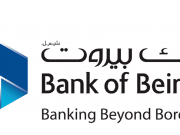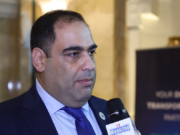By: Karl Flinders
Mumtalakat’s head of IT, Mohamed Sater, is modernising the IT infrastructure of the organisation through cloud computing
Mohamed Sater oversees the government-owned group, Mumtalaket, which holds all the Bahraini government’s non-oil and gas assets.
Bahrain sovereign wealth fund Mumtalakat is a holding company with about 60 companies in 14 countries under its umbrella, the total value of which is about $15bn.
Most of the companies it holds have their own separate IT departments, but Sater runs a team of five people that do the IT for the group company and supports four member companies directly, because they have no IT resources.
Sater studied his undergraduate degree in computer science at Brunel University in London and completed his post-graduate studies in design and management of information systems at the London School of Economics. He has worked in the financial services and IT industries and has been at Mumtalakat since 2011.
He recently achieved a first in Bahrain by helping Mumtalakat become the first government organisation in the country to migrate cloud-based systems to Amazon Web Services’ (AWS) datacentre in the Gulf state. This was part of a wider cloud migration project that began in May 2018, when Mumtalakat realised that it and the four group companies it supported direct with IT, needed a new infrastructure.
Sater and his internal team of five people completed this migration for Mumtalakat and the four companies it supports directly. Mumtalakat estimates that costs have fallen by 50% by moving from on-premise to the cloud. The organisation’s core systems are its ERP, SharePoint and email.
But moving away from the traditional servers in datacenters model and the heavy maintenance that goes with it is not just about cutting costs. Modernising IT was the main driver, said Sater. “Mumtalakat recognised that there is a big change in the IT environment and the future, and we are trying to become more modern in our implementation of IT,” said Sater.
Moving to cloud services
He said the first step for the organisation was to move to cloud services. It chose to work with Amazon due to the company’s infrastructure in Bahrain – but it was not just about moving to AWS. While it largely uses AWS, certain systems sit in the Microsoft Azure cloud. “Where it makes sense we will use other cloud suppliers.”
AWS gets to the majority of the workload, and its local infrastructure provides lower communications costs and faster services. “AWS is also investing in Bahrain and we want to support it,” said Sater.























































